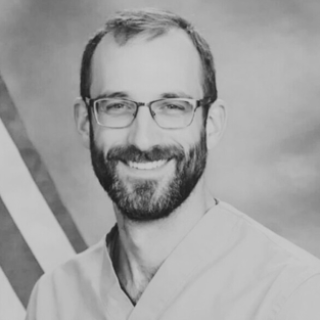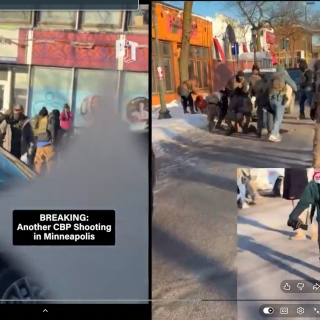Advertisement
“…Cuba's voice is a voice that must be heard in the United States of America. Yet it has not been heard. It must now be heard because the United States is too powerful, its responsibilities to the world and to itself are too great, for its people not to be able to listen to every voice of the hungry world.” ~ C. Wright Mills, Listen, Yankee: The Revolution in Cuba, 1960.
Mills’ words are unfortunately still true today. Cuban people remain hungry and we have not heard their voices because the U.S. has silenced them for more than 50 years by imposing a brutal “blockade” that we call an “embargo.” If any ship in the world goes to a Cuban port, they may not enter a U.S. port for six months. Any company that trades with Cuba is banned from the U.S. market. If any product uses any materials, pieces or parts from Cuba, it is not allowed to be sold in the United States.
Cuba’s crime? Being the only nation in the western hemisphere with the cojones to resist the world’s only “megapower.”
It appears that President Barack Obama however, in the aftermath of a thrashing by the Republican Party in the midterm Congressional elections, suddenly heard the whispers of his own conscience and the Cuban people. On December 17, he announced the re-establishment of diplomatic relations with the largest island in the Caribbean.
The action is largely symbolic, but did make it a bit easier for U.S. citizens to go to Cuba. You can now take an 80 minute-flight directly from the United States, receive an official visa and have a Cuban stamp on your passport. No more sneaking through Mexico or Canada, though you still cannot visit as a tourist.
We visited as educators and journalists with the folks from Code Pink.
Senator John McCain recently called Code Pink “low-life scum” for recently attempting a citizens’ arrest of Henry Kissinger for war crimes. The Code Pink organizers spurned in the U.S., sought affection elsewhere when they sent a delegation of 150 people “To Cuba with Love” from February 8-15, 2015. I was part of that “largest group to visit Cuba from the United States.” Code Pink director Medea Benjamin saw the trip as the “move toward world peace” and a “powerful solidarity message” to the Cuban people.
Because Cuba exists in part in a strange 1950s time warp thanks to the embargo that began in 1961 and continues to this day. The city of Havana seems frozen in time, like a 1950s postcard faded and frayed at the edges. The city of Havana’s architecture varies from crumbling but still stunning Spanish Colonial mansions to brightly colored stucco haciendas to huge art deco and art nouveau apartment buildings with each unit sporting its own balcony. In the rural areas, Cuba appears more Amish and pre-industrial with farmers using oxen and horse-drawn plows.
Cuban native Jesus Noguera Ravelo invited a small Code Pink group to his home in Havana, where he answered questions about life in Cuba and its future. He insisted that there has been more change in the last ten years than in the previous thirty.
Revalo had originally aspired to be a diplomat and majored in international studies. He was working on his Masters when he realized that, rather than stamping visas all day, he should be using his fluency in English to share the Cuban experience with English speaking visitors as a tour guide.
Tourism has been either the first or second leading industry in Cuba since the early 1990s. A key point is that Canada never broke diplomatic ties with Cuba and the rest of the English speaking world now has normal relations with the country.
The entire Code Pink group was greeted at the Cuban Institute of Friendship with the People (ICAP) by Ricardo Alarcon, who served as Cuba’s Permanent Representative to the United Nations (UN) and was President of the National Assembly of People's Power from 1993 to 2013. He expressed hope that the Code Pink visit would be an “exchange of knowledge.”
While Alarcon encouraged by the restoration of diplomatic ties after President Kennedy broke them off 55 years ago, he called the remaining embargo of Cuba continuing “economic warfare.” He called Obama’s decision “very positive.”
Alarcon questioned the logic of Cuba remaining one of four countries on the U.S. list of governments that sponsor terrorism, along with Iran, Sudan and Syria. That’s right – North Korea isn’t on the list nor was Libya when the U.S. and NATO attacked it in 2011. He pointed out the irony of the United States torturing people at Guantanamo while labeling Cuba a terrorist state.
He also mentioned the hypocrisy of any demand by the U.S. for Cuba to restore fundamental human rights. The point was well made, since the U.S. is the world’s largest surveillance state and tortured both the guilty and innocent on Cuban soil at Guantanamo. Most Cubans we talked with conceded that there were problems in Cuba, but wondered why a country they associated with torture and the open shooting of blacks on the streets of major U.S. cities would be so concerned about Cuban human rights instead of putting their own house in order.
Alarcon also noted that the U.S. retains great relations with many countries that do not recognize fundamental human rights, especially rights of women. He proudly pointed out that Cuba’s Parliament is 48.8 percent female and the governments of the local provinces elected 46 percent women. Currently the U.S. Congress had 19.4 percent women.
Alarcon also reminded the delegates that since 2003, Cuban mothers and fathers receive one year paid maternity/paternity leave. The U.S. government has no law requiring paid leave for new parents.
Cuba, after being abandoned by the Soviet Union in 1991 is transitioning away from its old Soviet-style model of state planning of economy used in the 60s, 70s and 80s. In the new economy, the country – having survived the “Special Period” of the 1990s when the Soviet Union withdrew support – some 440,000 workers are now self-employed. Revalo is now one of the so-called self-employed Cubans. Virtually all Cubans worked for the state government until the Special Period.
Alarcon noted “we should not be afraid of capitalists. This time it won’t be like when Columbus came.” He emphatically stated, “Cuba is not for sale. You must get the approval of the government, which will say yes or no” to capital investment in the country.
Our tour guide Betty, who works for the same co-op travel agency as Jesus, told us we need to remember that “most Cubans owned nothing in 1959 when the nationalization of property occurred. Fidel recognizes we have made mistakes. Here we are now without any model, without anybody to look to, working out our problems.”
Ravelo said that one of the country’s major changes was moving from sugar-only agriculture to diversified organic farming “because they had to.” Without financial credits from the Soviet Union and a guaranteed market for the sugar exports, Cuba could no longer employ the industrial strength model of heavy herbicides and pesticides.
When asked why there was not better internet service in Cuba and whether it had to do with an authoritarian government, Alarcon answered that it was “because the U.S. does not permit us” to get internet service and it has to go through Canada which never broke relations with Cuba.
Alarcon offered a question to the delegates: “Why did your government make it so hard to come to Cuba? We invite you to come and make up your own mind. Why does your government stop people from coming and making up their own mind? One state cannot dictate to another state.”
He also suggested that one day the people of the U.S. may not be under the control of a “plutocracy” but it may “take some time” and that “we don’t want to impose a social revolution on the United States.”
The Code Pink delegates listened to the Cuban people, shared knowledge and ideas, and agreed to take their words back to the people of the United States. Their key request is that the U.S. government end the blockade. The second request is to remove Cuba from the state-sponsored terrorist list. The third request is to stop torturing detainees at Guantanamo and return that land to the Cuban people.
As C. Wright Mills stated, “If we do not listen to them, if we do not hear them well, we face all the perils of ignorance—and with these, the perils of dangerous mistakes.”




